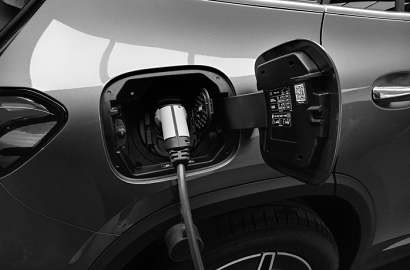Maersk to promote maritime transport decarbonisation from Spain

The production of green methanol will involve an investment of 10 billion euros, and will lead to the creation of 85,000 jobs
Danish shipping company Maersk has chosen Spain to develop the clean fuel that will power the ships of the future and enable world shipping decarbonisation. The company has signed a collaboration agreement with the Spanish government, confirming the commitment of both parties to explore opportunities for large-scale production of green fuels in Spain.
If that commitment is fulfilled, Spain could generate up to two million tonnes per year. But the plan goes beyond this, involving a study into the feasibility of encompassing the entire value chain, from the renewable energy sources that will be used to produce the methanol to the bunkering of ships in ports.
Plants in Andalusia and Galicia
The possibility of installing two green methanol production plants in Andalusia and Galicia is currently being explored. It is estimated that around 85,000 direct and indirect jobs will be created, including those associated with constructing these facilities. According to the government, the proposed investment, in collaboration with national and international private partners, is around 10 billion euros.
For Maersk, Spain is one of the key countries for its decarbonisation plans, and one of the most attractive for producing green fuels, thanks to the availability of renewable energy, links to key maritime routes, a stable investment climate and a green transition policy that is in line with the company's own principles and objectives.
Sustainable fleet
Currently, the main challenge for the decarbonisation of global shipping is the availability of sufficient quantities of sustainable fuels. Maersk alone, one of the world's largest shipping lines, would need around six million tonnes of green methanol per year to reduce its fleet's emissions in line with its 2030 targets, and even more if it is to achieve its goal of net-zero emissions by 2040.
Between 2023 and 2025, the Danish shipping company will launch nineteen ships capable of running on green methanol, which will require some 750,000 tonnes of this fuel each year. The agreement with the Spanish government is one of seven that the company announced earlier this year to secure fuel volumes for its future sustainable fleet.
Climate emergency
As Søren Skou, CEO of A.P Moller-Maersk, reiterated, “We’re experiencing a climate emergency and need to rapidly accelerate the availability of the green fuels of the future. We’re very pleased to be exploring green fuel opportunities with the Spanish government, as Spain has characteristics that are key for helping to meet this challenge with its great ambitions for hydrogen and bold sustainability goals. At the same time, Spain has significant renewable resources, and is located along key maritime routes.”
Spanish Prime Minister Pedro Sánchez said that this agreement “will strengthen economic, political and commercial ties with Denmark, a partner and friend in the EU”, and added, “This project is perfectly aligned with Spain's strategy for reindustrialisation, a fair energy transition and a green hydrogen roadmap, progressing towards a fulfilment of the European Union's shared commitment to decarbonisation”.
Enriqueta Hallberg, the company's CEO of Fleet and Strategic brands, explained, “As we operate a large fleet of container vessels, we’re part of the climate problem, and we’ve made the decision to take an active role in shaping the solutions that will ensure a fair green transition, enabling the global shipping industry to comply with the Paris Agreement and Maersk's own goal of achieving net-zero emissions by 2040. To achieve our objectives, we need to collaborate with partners who are actively seeking green solutions for the future."
Photo: Maersk
Pedro Sánchez at Moncloa with Maersk CEO, Søren Skou, and the Spanish Independent Director of the Danish group, Amparo Moraleda.




